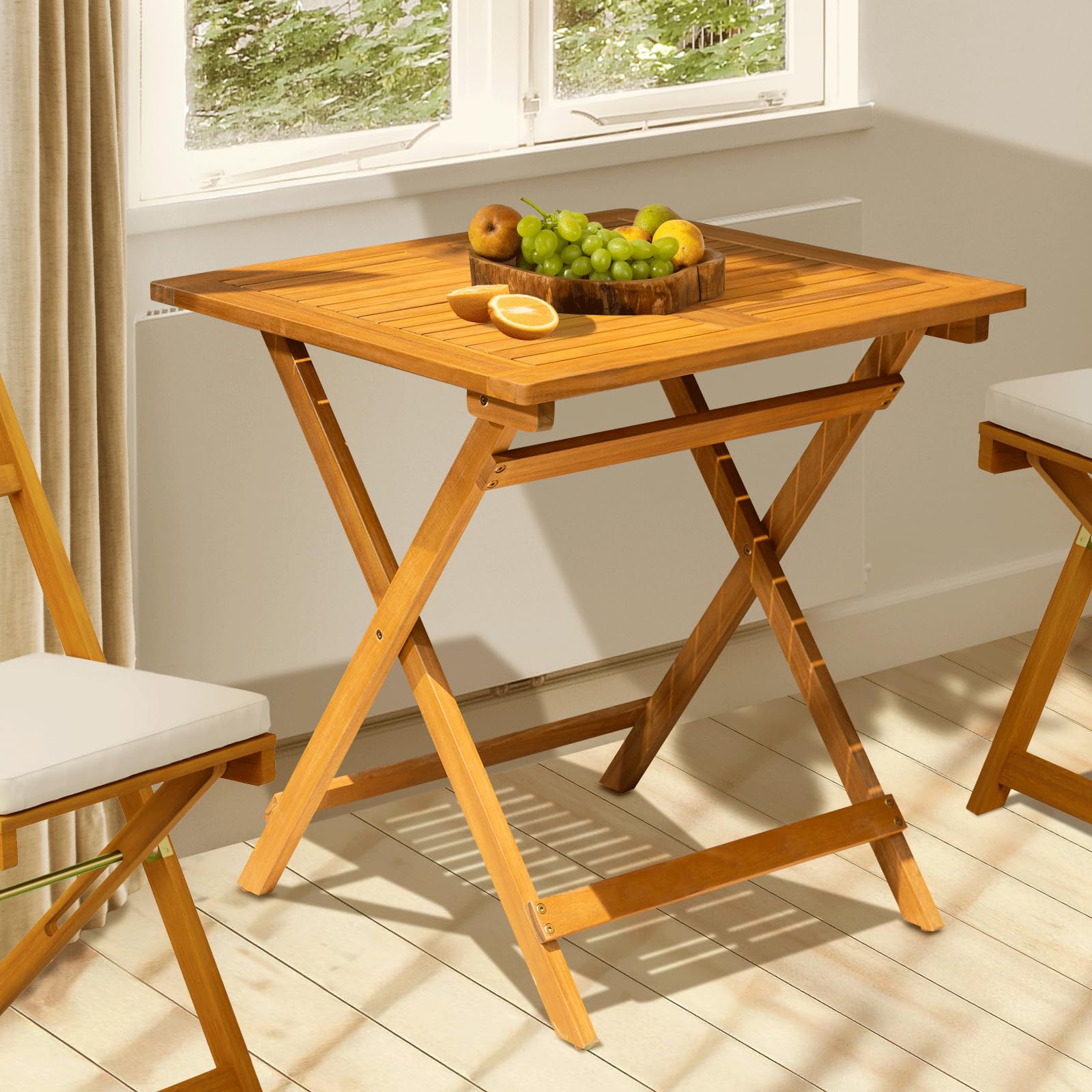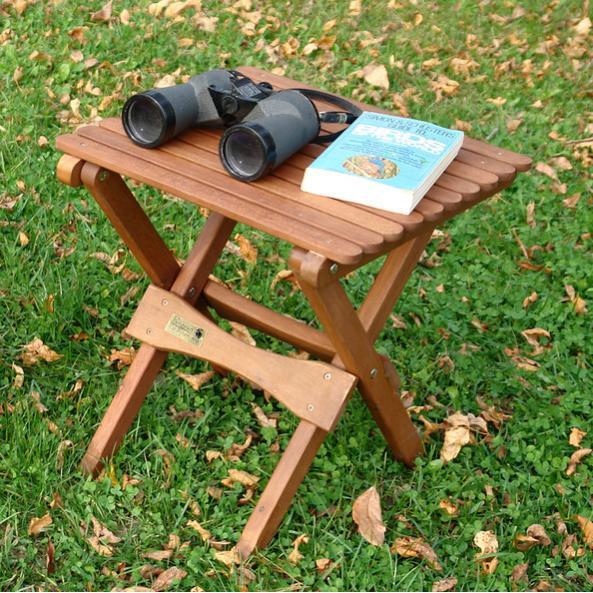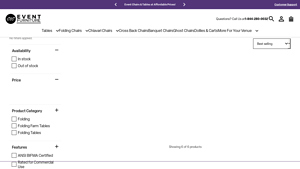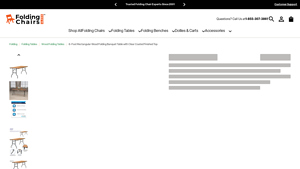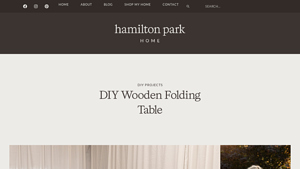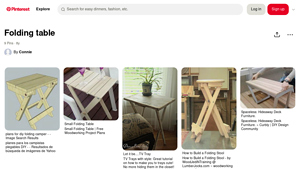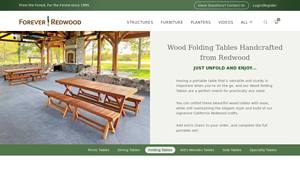Wooden Folding Table Guide: Type,Cost,Material…
Introduction: Navigating the Global Market for wooden folding table
In today’s competitive landscape, sourcing high-quality wooden folding tables can be a daunting task for international B2B buyers, especially when considering factors such as durability, design, and cost-effectiveness. As businesses across Africa, South America, the Middle East, and Europe look to enhance their event spaces and operational efficiency, understanding the nuances of the wooden folding table market becomes imperative. This guide provides an in-depth exploration of various types of wooden folding tables, their applications in different sectors, and essential tips for vetting suppliers to ensure quality and reliability.
From banquet settings to outdoor events, wooden folding tables serve as versatile solutions that can adapt to a myriad of needs. In this comprehensive resource, we delve into the specific requirements for sourcing, including material considerations, pricing strategies, and logistical challenges that may arise when importing these products. We aim to equip buyers with the knowledge necessary to make informed purchasing decisions that align with their operational goals and budget constraints.
By addressing common challenges and providing actionable insights, this guide empowers B2B buyers to navigate the complexities of the global wooden folding table market confidently. Whether you are based in bustling cities like Lagos or Hanoi, our expert recommendations will help streamline your procurement process, ensuring that you select the best products for your unique business needs.
Understanding wooden folding table Types and Variations
| Type Name | Key Distinguishing Features | Primary B2B Applications | Brief Pros & Cons for Buyers |
|---|---|---|---|
| Folding Banquet Tables | Large rectangular design, sturdy construction | Events, conferences, catering | Pros: High capacity, versatile usage. Cons: Bulkier, may require more storage space. |
| Folding Card Tables | Smaller, lightweight, often square or round | Small gatherings, break rooms | Pros: Easy to transport, space-efficient. Cons: Limited seating capacity. |
| Folding Utility Tables | Multi-purpose, varying sizes, often adjustable height | Workshops, trade shows, outdoor events | Pros: Versatile for different tasks, adjustable. Cons: May lack aesthetic appeal. |
| Folding Picnic Tables | Built-in benches, portable design | Outdoor events, family gatherings | Pros: Convenient for outdoor use, family-friendly. Cons: Limited to outdoor settings. |
| Folding Office Tables | Professional design, often with cable management | Meetings, training sessions | Pros: Enhances workplace organization, modern look. Cons: Typically more expensive. |
What Are Folding Banquet Tables and Their B2B Relevance?
Folding banquet tables are designed for larger gatherings, featuring a rectangular shape that can accommodate multiple guests. Commonly used in events, conferences, and catering services, these tables offer stability and ample surface area for dining or displays. When purchasing, B2B buyers should consider factors such as weight capacity, ease of setup, and storage options, as these tables often require more room when not in use.
How Do Folding Card Tables Serve Businesses?
Folding card tables are typically smaller, making them ideal for casual settings such as break rooms or small gatherings. Their lightweight nature allows for easy transport and setup, which is beneficial for businesses hosting frequent events. Buyers should evaluate the durability and materials used, as well as the table’s dimensions to ensure it meets their specific spatial needs.
Why Choose Folding Utility Tables for Versatile Applications?
Folding utility tables are highly versatile and can be adjusted in height, making them suitable for a variety of applications, from workshops to trade shows. Their adaptability allows businesses to utilize them for different tasks, enhancing functionality. When selecting these tables, B2B buyers should assess the weight capacity and material strength to ensure they can withstand the intended use.
What Makes Folding Picnic Tables Ideal for Outdoor Events?
Folding picnic tables are designed for outdoor use, featuring built-in benches that promote social interaction. They are particularly suited for family gatherings, picnics, and outdoor events. B2B buyers should consider the table’s portability and weather resistance, as these factors will affect usability in varying outdoor conditions.
How Do Folding Office Tables Enhance Professional Settings?
Folding office tables combine functionality with a professional aesthetic, making them suitable for meetings and training sessions. They often come with features like cable management, adding to their organizational benefits. When purchasing, B2B buyers should focus on design, durability, and ease of storage, as these tables need to maintain a professional appearance while being functional.
Key Industrial Applications of wooden folding table
| Industry/Sector | Specific Application of Wooden Folding Table | Value/Benefit for the Business | Key Sourcing Considerations for this Application |
|---|---|---|---|
| Event Management | Temporary seating for conferences, exhibitions, and banquets | Flexible and space-efficient solution for diverse event needs | Durability, ease of transport, and aesthetic appeal |
| Hospitality | Dining setups in restaurants, cafes, and catering services | Enhances customer experience with stylish and functional furniture | Material quality, weight capacity, and ease of cleaning |
| Education | Classroom and seminar setups | Provides versatile seating arrangements for various learning activities | Stability, adjustability, and compliance with safety standards |
| Retail and Trade Shows | Display tables for product showcases and sales events | Increases product visibility and customer engagement | Portability, design versatility, and branding options |
| Community and Cultural Events | Tables for festivals, fairs, and community gatherings | Fosters social interaction and community engagement | Weather resistance, ease of storage, and custom design options |
How Are Wooden Folding Tables Used in Event Management?
In the event management sector, wooden folding tables serve as a versatile solution for temporary seating arrangements during conferences, exhibitions, and banquets. Their portability allows event planners to easily set up and dismantle spaces according to fluctuating attendee numbers. The aesthetic appeal of wooden tables also enhances the overall ambiance, making events more inviting. For international buyers, sourcing tables that are durable and lightweight is crucial, as they often need to be transported across different locations.
What Role Do Wooden Folding Tables Play in the Hospitality Industry?
In the hospitality industry, wooden folding tables are commonly used in restaurants, cafes, and catering services. They provide a stylish yet functional dining solution that can be adapted to various customer needs, such as accommodating large groups or creating intimate settings. The ability to quickly rearrange seating allows for efficient space management, especially during peak hours. Buyers should consider the quality of materials and ease of maintenance to ensure long-lasting use in high-traffic environments.
How Are Wooden Folding Tables Beneficial in Educational Settings?
Educational institutions utilize wooden folding tables for classrooms and seminar setups, offering flexible seating arrangements that can be adjusted based on group sizes and activities. These tables facilitate collaborative learning environments, making them ideal for workshops and group projects. Buyers in the education sector must prioritize stability and compliance with safety standards, ensuring that the tables can withstand daily use while providing a safe learning environment.
What Advantages Do Wooden Folding Tables Offer Retailers at Trade Shows?
Retailers leverage wooden folding tables at trade shows for product displays and sales events. These tables enhance product visibility and create an engaging atmosphere for potential customers. Their portable nature allows retailers to easily transport and set up displays in various locations. When sourcing tables for this purpose, businesses should focus on design versatility and the ability to customize branding elements, ensuring a cohesive marketing strategy.
How Are Wooden Folding Tables Used in Community and Cultural Events?
Wooden folding tables are essential for community and cultural events, providing a gathering space for festivals, fairs, and social functions. They encourage social interaction and community engagement by offering a place for attendees to congregate. For buyers in this sector, considerations such as weather resistance and ease of storage are vital, as events may occur outdoors and require quick setup and breakdown. Custom design options can also enhance the visual appeal of these gatherings.
3 Common User Pain Points for ‘wooden folding table’ & Their Solutions
Scenario 1: Difficulty in Ensuring Product Quality and Durability
The Problem: B2B buyers often face challenges in sourcing wooden folding tables that meet their quality and durability standards. In international markets, variations in manufacturing practices and materials can lead to inconsistencies. Buyers may receive tables that are flimsy, poorly constructed, or made from low-quality wood, resulting in dissatisfaction from their customers and potential financial losses.
The Solution: To ensure high-quality wooden folding tables, buyers should conduct thorough research on suppliers. Look for manufacturers with a proven track record and positive reviews, particularly those with international experience. Request samples before placing bulk orders to assess the construction quality and durability. Additionally, specify your requirements clearly, including wood type, weight capacity, and design features, to help manufacturers understand your expectations. Implementing a quality control process during the shipping phase can also mitigate risks. Establish clear communication channels with suppliers to address any concerns promptly.
Scenario 2: Space Management Challenges in Logistics and Storage
The Problem: Many businesses struggle with space management when it comes to storing and transporting wooden folding tables. These tables can be bulky, making it difficult to optimize storage spaces or transport them efficiently. Without proper planning, businesses may encounter logistical headaches, including increased shipping costs and wasted warehouse space.
The Solution: To alleviate space management challenges, consider sourcing tables that are designed for easy stacking and storage. Look for models with fold-in-half features or lightweight designs that are easy to transport. When planning logistics, create a detailed inventory management system that tracks the dimensions and weight of each table type. This will help in designing efficient storage layouts and optimizing transportation. Collaborating with logistics providers who understand the handling of folding furniture can also lead to more efficient transport solutions, reducing costs and improving delivery timelines.
Scenario 3: Limited Understanding of Market Preferences and Trends
The Problem: B2B buyers may struggle to stay updated on the latest market trends and customer preferences related to wooden folding tables. This lack of awareness can lead to stock that does not align with market demands, resulting in excess inventory and lost sales opportunities. For instance, a buyer might purchase a large quantity of traditional-style tables when contemporary, multi-functional designs are in demand.
The Solution: To better understand market preferences, buyers should invest in market research and trend analysis. Attend trade shows, exhibitions, and industry conferences to network with other professionals and gain insights into emerging trends. Utilize online resources, such as industry reports and social media analytics, to monitor consumer preferences. Additionally, engage with end-users to gather feedback on their needs and preferences. By staying informed and adaptable, buyers can select products that align with market demands, ultimately leading to higher sales and customer satisfaction. Collaborating with suppliers who can provide insights into trending designs can also help businesses stay ahead of the curve.
Strategic Material Selection Guide for wooden folding table
What Are the Key Properties of Common Materials Used in Wooden Folding Tables?
When selecting materials for wooden folding tables, it is essential to consider various types of wood and their properties. The most common materials include solid wood, plywood, particleboard, and engineered wood. Each material has unique characteristics that can significantly affect the performance and suitability of the tables for different applications.
Solid Wood: Durability Meets Aesthetic Appeal
Solid wood, such as oak, maple, or walnut, is renowned for its durability and natural beauty. It can withstand significant weight and pressure, making it suitable for heavy-use environments like banquet halls or outdoor events. However, solid wood can be susceptible to warping and cracking if not properly treated, especially in humid conditions. The cost of solid wood is generally high due to its natural sourcing and manufacturing complexity. For international buyers, compliance with local regulations regarding sustainable sourcing and certifications (like FSC) is crucial.
Plywood: Strength and Versatility
Plywood, particularly birch or marine-grade, is a popular choice for folding tables due to its excellent strength-to-weight ratio. Plywood is resistant to warping and cracking, making it suitable for varying climates. Its layered construction provides stability, while the smooth surface allows for easy cleaning. However, the cost of high-quality plywood can be moderate to high, and it may not have the same aesthetic appeal as solid wood. B2B buyers should ensure that the plywood meets international standards such as ASTM and consider the environmental impact of sourcing.
Particleboard: Cost-Effective but Less Durable
Particleboard is an economical option made from wood chips and resin. It is lightweight and easy to manufacture, making it a popular choice for budget-conscious buyers. However, particleboard is less durable than solid wood or plywood and can be susceptible to moisture damage, which limits its use in outdoor settings. For international buyers, ensuring compliance with local safety standards is essential, as particleboard may contain formaldehyde. This material is best suited for temporary or low-use applications.
Engineered Wood: The Best of Both Worlds
Engineered wood combines various wood products to create a stable and durable material. It often includes layers of plywood or particleboard topped with a veneer of solid wood. This construction provides the aesthetic appeal of solid wood while maintaining the affordability and durability of composite materials. Engineered wood is suitable for various applications, from residential to commercial use. For international buyers, it is important to check for certifications regarding emissions and sustainability, as engineered wood can sometimes contain adhesives that may not meet local regulations.
Summary of Material Properties for Wooden Folding Tables
| Material | Typical Use Case for wooden folding table | Key Advantage | Key Disadvantage/Limitation | Relative Cost (Low/Med/High) |
|---|---|---|---|---|
| Solid Wood | High-end events, outdoor use | Exceptional durability and aesthetics | Susceptible to warping and cracking | High |
| Plywood | Banquet halls, outdoor events | Strong, lightweight, resistant to warping | Higher cost than particleboard | Medium to High |
| Particleboard | Temporary setups, low-use environments | Cost-effective and lightweight | Less durable, moisture-sensitive | Low |
| Engineered Wood | Versatile applications, commercial use | Combines aesthetics with durability | May contain adhesives not meeting local standards | Medium |
This strategic material selection guide provides a comprehensive overview of the key materials used in wooden folding tables, helping international B2B buyers make informed decisions that align with their specific needs and compliance requirements.
In-depth Look: Manufacturing Processes and Quality Assurance for wooden folding table
What Are the Key Stages in the Manufacturing Process of Wooden Folding Tables?
Manufacturing wooden folding tables involves a systematic process that ensures high-quality products suitable for various applications, from events to everyday use. The main stages include material preparation, forming, assembly, and finishing.
-
Material Preparation: The process begins with selecting high-quality wood, commonly birch, oak, or plywood. Logs are cut into planks, which are then dried to reduce moisture content. This drying process is critical as it prevents warping and cracking during the table’s lifespan. After drying, the wood is cut into specific dimensions needed for the table design.
-
Forming: In this stage, the prepared wood is shaped into table tops and legs. Techniques such as routing, sanding, and cutting are employed to achieve smooth edges and precise dimensions. Advanced CNC machines are often used for accuracy, especially when dealing with intricate designs or large production volumes.
-
Assembly: Once the components are formed, they are assembled. This step involves attaching the table legs to the tabletop using strong adhesives and mechanical fasteners like screws and brackets. Proper alignment and secure fastening are essential to ensure the table can withstand weight and frequent folding.
-
Finishing: The final stage includes sanding the assembled table to achieve a smooth surface, followed by applying finishes such as stains, varnishes, or protective coatings. These finishes not only enhance the aesthetic appeal but also provide durability against wear and tear. Quality control checks are performed throughout this process to ensure consistency and adherence to specifications.
What Quality Control Standards Should B2B Buyers Consider?
For international B2B buyers, understanding the quality assurance process is crucial for ensuring that the wooden folding tables meet their standards and requirements. Several international and industry-specific quality standards are relevant:
-
ISO 9001: This is a widely recognized quality management standard that outlines criteria for establishing a quality management system. Compliance with ISO 9001 ensures that manufacturers consistently provide products that meet customer and regulatory requirements.
-
CE Marking: In Europe, the CE mark indicates that a product meets EU safety, health, and environmental protection standards. For wooden folding tables, this could relate to the materials used and the structural integrity of the product.
-
API Standards: While more common in the oil and gas industry, some manufacturers may apply API standards to ensure the durability and performance of their products.
What Are the Key Quality Control Checkpoints in the Manufacturing Process?
Quality control in the manufacturing of wooden folding tables typically involves several critical checkpoints:
-
Incoming Quality Control (IQC): This initial checkpoint assesses raw materials for defects and ensures compliance with specified standards. For wooden tables, this involves inspecting the wood for moisture content, knots, and other imperfections.
-
In-Process Quality Control (IPQC): During the manufacturing process, periodic inspections are conducted to monitor the production stages. This ensures that any issues are identified and rectified early, maintaining quality throughout the assembly process.
-
Final Quality Control (FQC): After assembly and finishing, a comprehensive evaluation is performed. This includes checking the structural integrity, finish quality, and overall appearance of the tables. Products that do not meet established standards are either reworked or discarded.
What Common Testing Methods Are Used in Quality Assurance for Wooden Folding Tables?
Various testing methods are employed to ensure the safety and durability of wooden folding tables:
-
Load Testing: This involves applying weight to the table to determine its strength and stability under various conditions. Load testing is crucial for ensuring that tables can handle the intended usage scenarios.
-
Durability Testing: Manufacturers may simulate wear and tear by repeatedly folding and unfolding the table. This helps assess the longevity of hinges, joints, and the overall assembly.
-
Environmental Testing: Tables may undergo exposure to different humidity and temperature conditions to evaluate how the materials respond. This is particularly relevant for international buyers from varying climates.
How Can B2B Buyers Verify Supplier Quality Control?
B2B buyers should adopt a proactive approach to verify the quality control processes of their suppliers:
-
Supplier Audits: Conducting on-site audits of potential suppliers allows buyers to assess their quality control measures firsthand. This includes reviewing documentation, inspecting production processes, and evaluating compliance with international standards.
-
Requesting Quality Reports: Suppliers should provide detailed quality assurance reports that outline their testing methods, results, and compliance with relevant standards. These documents serve as a formal record of the supplier’s commitment to quality.
-
Third-Party Inspections: Engaging independent third-party inspection services can provide an unbiased evaluation of the products before shipment. This is particularly beneficial for buyers in regions such as Africa and South America, where logistical challenges may complicate direct inspections.
What Are the Quality Control Nuances for International B2B Buyers?
International buyers should be aware of specific nuances that may affect quality control:
-
Cultural Differences: Different regions may have varying standards for quality and safety. Understanding these differences is vital for effective communication with suppliers.
-
Regulatory Compliance: Buyers must ensure that products comply with local regulations in their respective markets. This may involve navigating complex import/export regulations, particularly in regions with strict safety standards.
-
Supply Chain Integrity: Establishing a reliable supply chain is crucial for maintaining consistent quality. Buyers should assess the entire supply chain, from raw materials to logistics, to ensure that quality is upheld at every stage.
By understanding the manufacturing processes and quality assurance measures associated with wooden folding tables, B2B buyers can make informed decisions that align with their business needs and customer expectations. This knowledge empowers them to select suppliers that prioritize quality and reliability, ultimately enhancing their product offerings in competitive markets.
Practical Sourcing Guide: A Step-by-Step Checklist for ‘wooden folding table’
Introduction
Sourcing wooden folding tables for your business requires careful consideration to ensure you meet your operational needs while securing quality products. This checklist will guide international B2B buyers through the critical steps involved in procuring these versatile furniture pieces, ensuring you make informed decisions that benefit your organization.
Step 1: Define Your Technical Specifications
Establishing clear technical specifications is essential for aligning your procurement with your operational needs. Consider factors such as dimensions, weight capacity, and materials. For example, if the tables will be used for outdoor events, look for weather-resistant finishes and sturdy construction to withstand various conditions.
Step 2: Identify Your Budget Constraints
Understanding your budget will help narrow your options and prevent overspending. Determine the price range acceptable for your organization while factoring in costs like shipping, customs, and potential duties. It’s wise to compare prices across multiple suppliers to identify competitive offers that meet your specifications.
Step 3: Evaluate Potential Suppliers
Before committing to a supplier, conduct thorough evaluations to ensure reliability and quality. Request company profiles, product catalogs, and references from other buyers in your industry. Look for suppliers with a proven track record, particularly those who have experience dealing with international clients, as they can navigate customs and logistics more efficiently.
Step 4: Verify Compliance with Industry Standards
Ensure that the wooden folding tables comply with relevant industry standards and regulations. This includes checking for certifications related to safety, sustainability, and material sourcing. For instance, tables made from sustainably sourced wood can enhance your brand’s reputation and may be a requirement in certain markets.
Step 5: Assess Quality and Durability
Inspect product samples or request detailed specifications to assess the quality and durability of the tables. Pay attention to the type of wood used, the construction methods, and any additional features like folding mechanisms and finish quality. High-quality tables will not only last longer but also provide a better return on investment.
Step 6: Understand Shipping and Delivery Terms
Clarify the shipping and delivery terms with your supplier to avoid unforeseen costs and delays. Discuss options for freight, estimated delivery times, and any additional charges that might arise. Ensure that the supplier has a reliable logistics partner to facilitate smooth transportation, especially when dealing with international shipments.
Step 7: Negotiate Terms and Finalize Contracts
Once you’ve selected a supplier, engage in negotiations to finalize pricing, payment terms, and delivery schedules. A well-drafted contract should outline all agreed-upon terms to protect both parties. Ensure that you include clauses related to returns, warranties, and after-sales support to safeguard your investment.
By following this checklist, you can streamline your sourcing process for wooden folding tables, ensuring that you secure the best products for your business needs while establishing strong supplier relationships.
Comprehensive Cost and Pricing Analysis for wooden folding table Sourcing
What Are the Key Cost Components in Sourcing Wooden Folding Tables?
When sourcing wooden folding tables, understanding the cost structure is crucial for B2B buyers. The primary cost components include:
-
Materials: The type of wood used significantly impacts costs. Options range from affordable plywood to premium hardwoods like oak or mahogany. Quality wood not only enhances aesthetics but also durability.
-
Labor: Labor costs can vary based on the region of production. Skilled labor is essential for crafting high-quality tables, especially when intricate designs or customizations are required.
-
Manufacturing Overhead: This includes utilities, facility costs, and other indirect expenses associated with production. Efficient manufacturing processes can help lower these costs.
-
Tooling: Initial investments in molds and machinery can be substantial, particularly for custom designs. However, these costs are amortized over production runs, impacting unit costs.
-
Quality Control (QC): Ensuring the tables meet specific standards can add to costs but is necessary to maintain quality and compliance, particularly for international markets.
-
Logistics: Shipping costs can be significant, especially for bulky items like tables. Factors such as distance, transportation method, and tariffs can influence overall logistics expenses.
-
Margin: Suppliers will typically include a margin that reflects their desired profit. This can vary widely based on brand positioning and market competition.
How Do Price Influencers Affect Wooden Folding Table Costs?
Several factors can influence pricing for wooden folding tables, particularly in international markets:
-
Volume/MOQ: Suppliers often offer discounts for larger orders. Understanding minimum order quantities (MOQs) can lead to significant savings.
-
Specifications and Customization: Custom designs or specific features (like foldability or unique finishes) can increase costs. Buyers should clearly define their needs to avoid unexpected expenses.
-
Materials: The choice of wood and finishes directly affects price. Buyers should balance quality with budget considerations, as higher-quality materials may offer better longevity and aesthetic appeal.
-
Quality and Certifications: Certifications (such as FSC for sustainable sourcing) can influence pricing. While these may add to upfront costs, they often enhance the product’s marketability.
-
Supplier Factors: The reputation and reliability of suppliers can affect pricing. Established suppliers may charge a premium, but they often offer better service and quality assurance.
-
Incoterms: Understanding shipping terms and responsibilities can prevent hidden costs. Incoterms dictate who pays for freight, insurance, and customs, impacting total expenses.
What Buyer Tips Can Enhance Cost-Efficiency in Sourcing Wooden Folding Tables?
To optimize sourcing costs, B2B buyers should consider the following tips:
-
Negotiation: Engage suppliers in discussions about pricing, especially for larger orders. Establishing long-term relationships can lead to better terms and pricing.
-
Total Cost of Ownership (TCO): Evaluate not just the purchase price but also the long-term costs associated with maintenance, durability, and logistics. A lower upfront cost may result in higher long-term expenses if the product does not last.
-
Pricing Nuances for International Buyers: Consider currency fluctuations, import duties, and local taxes when calculating the total cost. Buyers from regions like Africa, South America, the Middle East, and Europe should be aware of these factors to avoid budget overruns.
-
Seek Multiple Quotes: Obtaining quotes from various suppliers can provide leverage in negotiations and help identify the best value offerings.
Disclaimer on Indicative Prices
While indicative prices for wooden folding tables typically range from $30 to $500 depending on specifications and quality, these figures are subject to change based on market dynamics, production costs, and supplier policies. Buyers should conduct thorough market research and engage directly with suppliers to obtain the most accurate and current pricing information.
Alternatives Analysis: Comparing wooden folding table With Other Solutions
Understanding Alternatives to Wooden Folding Tables
In the competitive landscape of B2B furniture solutions, wooden folding tables are a popular choice due to their versatility and aesthetic appeal. However, exploring alternative options can provide buyers with insights into cost-effectiveness, performance, and suitability for specific environments. This section analyzes wooden folding tables against other viable solutions, enabling international B2B buyers to make informed decisions based on their unique needs.
Comparison Table
| Comparison Aspect | Wooden Folding Table | Plastic Folding Table | Metal Folding Table |
|---|---|---|---|
| Performance | Durable, suitable for various events | Lightweight, easy to transport | Very sturdy, ideal for heavy use |
| Cost | Moderate ($150 – $300) | Low ($30 – $150) | Moderate to high ($100 – $400) |
| Ease of Implementation | Minimal assembly required | No assembly needed | Moderate assembly may be required |
| Maintenance | Requires regular polishing | Easy to clean, minimal upkeep | Rust-resistant options available |
| Best Use Case | Elegant events, long-term setups | Outdoor events, casual gatherings | Industrial settings, trade shows |
Detailed Breakdown of Alternatives
What Are Plastic Folding Tables and Their Benefits?
Plastic folding tables are a lightweight and cost-effective alternative to wooden tables. They are made from high-density polyethylene (HDPE) and offer excellent resistance to weather conditions, making them ideal for outdoor events. Their low price point makes them accessible for budget-conscious buyers. However, while they are easy to transport and clean, they may lack the aesthetic appeal and durability of wooden options, particularly in formal settings.
How Do Metal Folding Tables Compare?
Metal folding tables, often constructed from steel or aluminum, are known for their robustness and ability to withstand heavy use. They are suitable for environments where durability is paramount, such as industrial settings or trade shows. While they typically require some assembly and are heavier than plastic tables, their longevity and strength make them a reliable choice. However, their industrial appearance may not suit all event types, particularly those that demand a more elegant setup.
Conclusion: How to Choose the Right Solution for Your Needs
Selecting the right table solution involves assessing the specific requirements of your events or business operations. If aesthetic appeal and a formal atmosphere are priorities, wooden folding tables are an excellent choice. For outdoor events or casual gatherings, plastic tables offer convenience and affordability. Conversely, for heavy-duty applications, metal tables provide unmatched strength and stability. By considering factors such as performance, cost, and maintenance, B2B buyers can make informed decisions that align with their operational goals and customer expectations.
Essential Technical Properties and Trade Terminology for wooden folding table
What Are the Key Technical Properties of Wooden Folding Tables?
When considering wooden folding tables for B2B procurement, several technical properties are essential to evaluate. These properties not only affect the product’s functionality but also its marketability and suitability for various applications.
-
Material Grade
The grade of wood used in manufacturing folding tables significantly impacts durability and aesthetics. Common materials include solid wood, plywood, and engineered wood. Higher grades, such as premium birch or oak, provide better strength and a more refined appearance, making them suitable for upscale events or long-term use. -
Weight Capacity
Understanding the weight capacity is crucial for ensuring the table meets specific usage requirements. Most folding tables have weight limits ranging from 150 lbs to over 450 lbs. This specification is vital for B2B buyers in industries like hospitality and event planning, where tables may be loaded with heavy items during functions. -
Finish and Coating
The finish applied to the table surface affects both its appearance and longevity. Options like lacquer, varnish, or polyurethane provide varying levels of resistance to scratches, stains, and moisture. A durable finish is particularly important for tables used in high-traffic environments, as it prolongs the product’s life and maintains its visual appeal. -
Foldability and Portability
The design of the folding mechanism should allow for easy setup and breakdown. Features such as automatic locks and lightweight frames enhance portability, making the tables suitable for events that require frequent relocation. This property is especially important for businesses in sectors like catering, where efficiency is key. -
Size and Shape Options
Wooden folding tables come in various sizes and shapes, including rectangular, round, and square configurations. Offering a range of dimensions caters to different market needs, from intimate gatherings to large events. Understanding the seating capacity associated with each shape aids in making informed purchasing decisions. -
Environmental Compliance
Many B2B buyers are increasingly concerned with sustainability. Tables made from sustainably sourced wood or those that meet specific environmental certifications (e.g., FSC-certified) can appeal to eco-conscious customers. This compliance can also enhance a company’s reputation and align with corporate social responsibility goals.
What Are Common Trade Terms Related to Wooden Folding Tables?
Navigating the procurement landscape requires familiarity with industry jargon. Here are some essential trade terms that B2B buyers should understand:
-
OEM (Original Equipment Manufacturer)
This term refers to companies that manufacture products that are sold under another company’s brand. Understanding OEM relationships can help buyers identify reliable suppliers and negotiate better pricing. -
MOQ (Minimum Order Quantity)
MOQ indicates the smallest number of units a supplier is willing to sell. Knowing the MOQ is crucial for buyers to avoid over-committing resources and to ensure that their purchasing needs align with supplier requirements. -
RFQ (Request for Quotation)
An RFQ is a document sent to suppliers requesting pricing information for specific products. This is a standard practice in B2B procurement to compare prices and terms before making purchasing decisions. -
Incoterms (International Commercial Terms)
These are standardized trade terms that define the responsibilities of buyers and sellers in international transactions. Familiarity with Incoterms helps buyers understand shipping responsibilities, cost allocation, and risk management. -
Lead Time
Lead time refers to the time it takes from placing an order to receiving the product. Understanding lead times is vital for inventory management and planning in businesses that depend on timely delivery for events or projects. -
Customization Options
This term refers to the ability to modify products to meet specific customer needs, such as size, color, or branding. Customization can be a significant selling point for wooden folding tables in various markets, allowing businesses to differentiate themselves.
By grasping these technical properties and trade terms, B2B buyers can make informed decisions that align with their operational needs and market demands.
Navigating Market Dynamics and Sourcing Trends in the wooden folding table Sector
What Are the Current Market Dynamics and Key Trends Influencing the Wooden Folding Table Sector?
The global wooden folding table market is experiencing a surge in demand, driven by factors such as urbanization, the rise of remote work, and increased interest in multifunctional furniture. B2B buyers from Africa, South America, the Middle East, and Europe are particularly influenced by changing consumer preferences that favor space-saving solutions. As more businesses and organizations adapt to flexible working environments, the need for versatile furniture that can be easily stored or transported is becoming paramount.
Emerging technologies are also reshaping the sourcing landscape. E-commerce platforms and digital marketplaces are streamlining the procurement process, allowing international buyers to source products directly from manufacturers with minimal intermediaries. Furthermore, the integration of AI in inventory management and logistics is enhancing supply chain efficiencies, providing real-time data and predictive analytics that can inform purchasing decisions.
Sustainability is another critical trend. Buyers are increasingly seeking suppliers who adhere to eco-friendly practices and offer sustainably sourced materials. This shift is evident in the rise of companies that prioritize green certifications and promote the use of renewable resources. As such, international buyers should remain vigilant about market dynamics that emphasize sustainability and innovation in product offerings.
How Important Is Sustainability and Ethical Sourcing for B2B Buyers in the Wooden Folding Table Sector?
Sustainability and ethical sourcing are no longer optional considerations for B2B buyers; they have become essential components of the procurement strategy. The environmental impact of traditional wood sourcing practices has prompted many buyers to evaluate their supply chains critically. The focus is on reducing carbon footprints and ensuring that the wood used in folding tables is sourced from responsibly managed forests.
Buyers should seek suppliers with recognized green certifications, such as the Forest Stewardship Council (FSC) or the Sustainable Forestry Initiative (SFI). These certifications guarantee that the wood comes from sustainable sources that adhere to strict environmental and social standards. Additionally, the use of reclaimed or recycled wood is gaining traction, offering a sustainable alternative that appeals to eco-conscious consumers.
Ethical sourcing not only enhances brand reputation but also resonates with a growing demographic of consumers who prioritize sustainability. This trend is particularly pronounced in regions like Europe, where regulatory frameworks increasingly mandate environmental accountability. By integrating sustainability into their sourcing strategies, B2B buyers can foster long-term relationships with suppliers and differentiate themselves in a competitive marketplace.
How Has the Wooden Folding Table Market Evolved Over Time?
The evolution of the wooden folding table market reflects broader societal changes and advancements in manufacturing. Initially, folding tables were primarily utilitarian, designed for temporary use in events or gatherings. However, as consumer lifestyles evolved, so did the design and functionality of these tables. The introduction of contemporary aesthetics and multifunctional designs has transformed wooden folding tables into stylish, versatile pieces suitable for various settings, including homes, offices, and event venues.
Technological advancements in production have also played a significant role. Improved manufacturing processes have enabled the creation of lightweight yet durable wooden folding tables that are easy to transport and store. Additionally, innovations in finishes and coatings have enhanced the durability and visual appeal of these products, making them more attractive to a broader range of B2B buyers.
In summary, the wooden folding table sector has transitioned from a niche market to a vital component of flexible furniture solutions, driven by consumer demand for sustainability, functionality, and style. As international B2B buyers navigate this dynamic landscape, understanding these trends will be essential for making informed sourcing decisions.
Frequently Asked Questions (FAQs) for B2B Buyers of wooden folding table
1. How do I ensure the quality of wooden folding tables from suppliers?
To ensure the quality of wooden folding tables, conduct thorough research on potential suppliers. Look for certifications such as ISO 9001, which indicates a commitment to quality management. Request samples to assess the craftsmanship and materials used. Additionally, check for reviews or testimonials from other B2B buyers. Establish clear quality assurance (QA) criteria in your purchase agreement, including specifications for wood type, finish, and structural integrity. Regular audits and inspections during production can also help maintain quality standards.
2. What is the best type of wood for folding tables?
The best type of wood for folding tables often depends on the intended use and budget. Popular choices include birch, oak, and maple, known for their strength and durability. Birch plywood is particularly favored for its polished finish and rigidity, making it ideal for both commercial and residential use. If weight is a concern, consider lighter woods like pine, although they may not offer the same durability. Ultimately, choose wood that balances aesthetics, functionality, and cost-effectiveness based on your specific needs.
3. What factors should I consider when vetting suppliers of wooden folding tables?
When vetting suppliers, consider their experience in the industry, production capabilities, and reputation. Assess their compliance with international trade regulations and quality standards. Inquire about their sourcing practices for wood to ensure sustainability. Evaluate their ability to provide customization options, such as sizes, colors, and finishes. Additionally, check their logistics capabilities to ensure timely delivery. A reliable supplier should also offer good after-sales support, including warranties and return policies.
4. What are typical minimum order quantities (MOQs) for wooden folding tables?
Minimum order quantities (MOQs) for wooden folding tables can vary significantly among suppliers. Generally, MOQs range from 50 to 500 units, depending on the supplier’s production capacity and the customization required. Smaller manufacturers may offer lower MOQs, while larger factories typically require higher orders to optimize production efficiency. It’s advisable to discuss your specific needs with potential suppliers to negotiate favorable MOQs, especially if you are starting with a new product line or testing a market.
5. What payment terms should I expect when sourcing wooden folding tables internationally?
Payment terms can vary widely based on supplier policies and the relationship established. Common practices include a deposit of 30% to 50% upon order confirmation, with the balance due before shipment. Some suppliers may offer net terms, allowing payment within 30 to 90 days after delivery. Always ensure that payment terms are clearly outlined in the contract to avoid misunderstandings. Consider using secure payment methods, such as letters of credit or escrow services, to protect your investment during international transactions.
6. How can I customize wooden folding tables to suit my business needs?
Customization options for wooden folding tables typically include variations in size, color, finish, and design features. When approaching a supplier, clearly communicate your requirements, including dimensions, wood type, and specific aesthetic preferences. Discuss any additional features, such as folding mechanisms or locking systems, that may enhance usability. Many suppliers are willing to accommodate custom requests, but be mindful that this may affect lead times and pricing. Request prototypes to evaluate the design before finalizing the order.
7. What are the logistics considerations for importing wooden folding tables?
Logistics considerations for importing wooden folding tables include shipping methods, tariffs, and import regulations specific to your country. Determine whether air freight or sea freight is more suitable based on budget and urgency. Be aware of any customs duties and taxes that may apply, as these can significantly impact overall costs. Collaborating with a freight forwarder can simplify the process, ensuring compliance with documentation and regulations. Additionally, plan for potential delays due to customs clearance or shipping schedules.
8. How do I handle potential issues with my wooden folding table order?
Handling potential issues with your wooden folding table order begins with clear communication with your supplier. Document any discrepancies, such as incorrect quantities or quality issues, and notify the supplier immediately. Most reputable suppliers will have a return or replacement policy in place. If issues persist, refer to your contract terms regarding dispute resolution. Maintaining a good relationship with your supplier can facilitate a smoother resolution process. For future orders, consider incorporating more stringent QA checks to mitigate similar problems.
Important Disclaimer & Terms of Use
⚠️ Important Disclaimer
The information provided in this guide, including content regarding manufacturers, technical specifications, and market analysis, is for informational and educational purposes only. It does not constitute professional procurement advice, financial advice, or legal advice.
While we have made every effort to ensure the accuracy and timeliness of the information, we are not responsible for any errors, omissions, or outdated information. Market conditions, company details, and technical standards are subject to change.
B2B buyers must conduct their own independent and thorough due diligence before making any purchasing decisions. This includes contacting suppliers directly, verifying certifications, requesting samples, and seeking professional consultation. The risk of relying on any information in this guide is borne solely by the reader.
Top 6 Wooden Folding Table Manufacturers & Suppliers List
1. CTC Event Furniture – HERCULES Series Folding Farm Tables
Domain: ctceventfurniture.com
Registered: 2013 (12 years)
Introduction: Folding Farm Tables from CTC Event Furniture include the following key products: 1. HERCULES Series 9′ x 40″ Rectangular Solid Pine Folding Farm Table – Antique Rustic, starting at $499.99. 2. HERCULES Series 7′ x 40″ Rectangular Solid Pine Folding Farm Table – Antique Rustic, priced at $452.72. 3. HERCULES Series 8′ x 40″ Solid Pine Folding Farm Table – Antique Rustic White, starting at $459.99. …
2. Folding Chairs 4 Less – 30×72 Wood Fold Table
Domain: foldingchairs4less.com
Registered: 2009 (16 years)
Introduction: {“product_name”:”30×72 Wood Fold Table”,”model_number”:”YT-WTFT30X72-TBL”,”dimensions”:”30 inches x 72 inches”,”type”:”Folding Table”,”material”:”Plywood top with black T-mold edge band and 18 gauge steel legs”,”weight_capacity”:”551 lb. static load capacity”,”seating_capacity”:”Seats up to 8 adults”,”features”:”Ready to use banquet style table, protective floor caps, designed for commercial use, …
3. Hamilton Park – DIY Wooden Folding Table
Domain: hamiltonparkhome.com
Registered: 2018 (7 years)
Introduction: DIY Wooden Folding Table made from sassafras wood, 1″ thick planks, varying widths of 5 ½” to 6 ½”. Overall dimensions approximately 34″ wide, 8′ long, and 30″ high. Legs made from 4×4 boards, 27 ½” in length. Features self-locking folding brackets for easy setup and storage.
4. Pinterest – Folding Cedar Table
Domain: pinterest.com
Registered: 2009 (16 years)
Introduction: Folding table, small size, easy to build, made from cedar, suitable for patio use, folds flat for storage, can be used as a picnic table, potential to add wheels for mobility, can serve as a TV tray with longer legs.
5. Fine Woodworking – Folding Table Project
Domain: finewoodworking.com
Registered: 1998 (27 years)
Introduction: Folding table project discussed in Fine Woodworking forum. Key details include: base construction information sought by a novice woodworker; base features simple legs tapered on 2 sides; suggested use of a tapering jig; dimensions for top and bottom provided in the article, but leg length is missing; joining methods include mortise and tenon, dowels, dominoes, or biscuits; apron height suggested a…
6. Forever Redwood – Handcrafted Folding Tables
Domain: foreverredwood.com
Registered: 2005 (20 years)
Introduction: Wood Folding Tables handcrafted from Redwood, portable and versatile, suitable for various needs. Available options include Rectangular Folding Picnic Table (two designs: checkerboard or boards laid in the same direction), Round Wood Folding Picnic Table, Round Folding Wood Table for Kids, Square Wooden Folding Table, Karyn’s Redwood Round Folding Picnic Table, and Outdoor Rectangular Folding Tabl…
Strategic Sourcing Conclusion and Outlook for wooden folding table
What Are the Key Takeaways for B2B Buyers in the Wooden Folding Table Market?
In the evolving landscape of wooden folding tables, strategic sourcing remains a critical component for international B2B buyers. The diverse range of products available, including banquet tables, card tables, and utility tables, caters to various market needs across sectors such as hospitality, event planning, and retail. Understanding the materials, such as high-quality birch plywood, and features like portability and stackability can significantly impact purchasing decisions. Competitive pricing and supplier reliability are paramount, ensuring that businesses can meet customer demands efficiently.
How Can Strategic Sourcing Enhance Your Competitive Edge?
Implementing a strategic sourcing approach allows buyers to not only secure favorable pricing but also build strong relationships with manufacturers and suppliers. This is particularly vital for businesses in regions like Africa, South America, the Middle East, and Europe, where market dynamics can vary greatly. By prioritizing sustainable sourcing practices and quality assurance, companies can enhance their reputation and customer satisfaction, leading to long-term success.
What’s Next for International Buyers in the Wooden Folding Table Market?
As the demand for versatile and durable furniture continues to rise, the outlook for wooden folding tables remains positive. Buyers are encouraged to explore new suppliers and innovative products that align with their business objectives. Engaging with manufacturers who prioritize sustainability and quality can provide a competitive advantage in an increasingly conscientious market. Embrace the opportunity to elevate your product offerings and strengthen your supply chain—your next strategic partnership could redefine your business trajectory.
